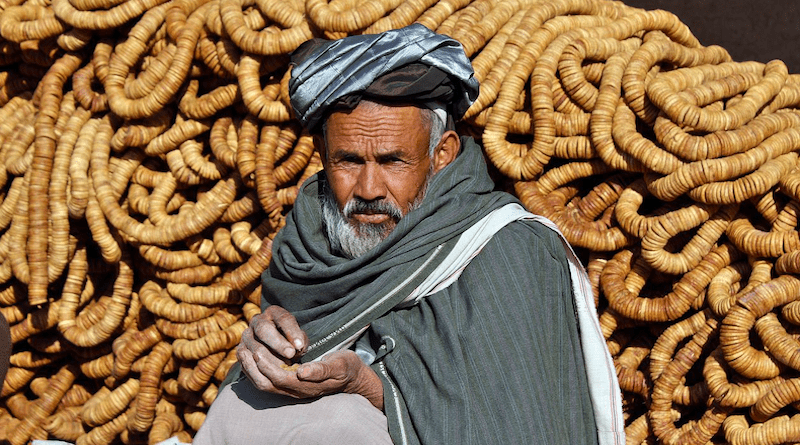Balochistan: Tribal And Political Systems, Insecurity And Resentments – OpEd
For decades, Balochistan has been a tribal society where the Pashtuns, and Baloch have distinct tribal values. Both nations have been governed by Nawab, Sardar, Khan, and Malik. Despite Hazaras and settlers who are limited to Quetta city, the rest of Balochistan is dominated by tribalism.
There are five Nawabs in the Baloch nations vis a vis Nawab of Bugti, Zehri, Raisani, Shahwani, and Marri tribes respectively. Here Nawab Raisani is called as the Nawab of Sarawan which is an areas of Mustung and adjacent areas while Nawab of Zehri is called Nawab of Jhalwan an area of Khuzdar and adjacent areas. While, in the Pashtun nation there are two tribes who are ruled by a Nawab vis a vis Nawab of Jogaizai and Nawab of Barozai tribes respectively. Meanwhile, in both nations there are many tribes who are headed by a sardar, Khan, and Malak.
The political landscape of Balochistan is composed of three political groups one is the so called federal parties, second is nationalist parties, while the third is religious parties. The religious and federalist parties have strong hold in both Pashtun and Baloch belts including Quetta, while the Pashtun nationalist parties are present in the Pashtun belt while the Baloch nationalists have hold in the Baloch belt. In addition, the Hazara nationalists are limited to two provincial assembly seats of Quetta city.
These tribal leaders have strong political hold in religious, nationalist, and federalist parties. It will not be wrong to assume that these tribal heavyweights are not the part of political parties rather political parties are merge into them owing their strong position in their respective constituencies. Dolefuly, majority of these tribal cum political leaders are turncoats and change their affiliation with the twinkling of eyes for petty interests. They are part of almost every government since 1970.
The Baloch insurgent groups have been resisting against the federal government since the inception of Pakistan and the ongoing insurgency is the fifth in number. Myriad of groups such as the BLA, the BRA, the BRF, the BLU, the BLF, the BRG, the UB), the BNA), Laskar_I_ Balochistan, and Baloch Jualaw Tigers have been operating in the province. Currently, the chief of the BNA Gulzar Imam surrendered to the authorities. Meanwhile, Baloch Raji Ajoi Sangsar BRAS is an organization of 4 militant groups has also been operating against the state. Lo and behold. The province mostly the Pashtun belt is penetrated by the TTP, which has also made a nexus with the other separatist groups in the province.
All the separatist groups and the governments of Balochistan time and again have shown resentments against the federal governments. Their grievances are mostly alike as they have been demanding due share in the copper and gold projects Sandaq and Rekodiq, in the NFC, in the BISP, in the CPEC, have reservations over lack of political representation in the federal legislature and in federal enterprises such as in the PIA, in the OGDCL, in the PPPL, etc. At the same time, they also have grievances over the extraction of Oil and Gas from the province which has been provided to the every nook and corner of the country while almost 93 percent of the province is deprived of it. At the same time, the politicians have also been demanding 50 percent share in the provincial natural resources from the federal government and have called upon the central government to abide by articles 158 and 172(3).
The political landscape of Balochistan is penetrated by tribalism where tribal heavyweights cum electabales shape and reshape the making and breaking of the government by altering their affiliation at midnight and switching from one party to another. At the same time, numerous Baloch separatist groups along with the TTP have been functioning militarily in the province.
In the midst of these grievances the people of Balochistan still beleive that their future lies within Pakistan. They still believe in constitutional struggle for their rights and provincial autonomy within the ambit of the law of the land. The Gallup survey tells that 67% of the dwellers of the province still want to stay with the federation of Pakistan and wish more provincial autonomy. The need of the hour is to pay heed to the resentments rest of 33 percent and we introspect as to why the 33 percent feel alienation?
There is a dire need to feel the sensitivity by the federal authorities and abide by the constitution with true spirit. The question arises as what is wrong on the part of the federal government to not abide by the constitution with special reference to articles 158 and 172(3)? The authorities in power must understand that Balochistan is burning and it matters a lot in the changing regional and international politics owing to the geoeconomic and geostrategic importance of the province. It is better late than never.

